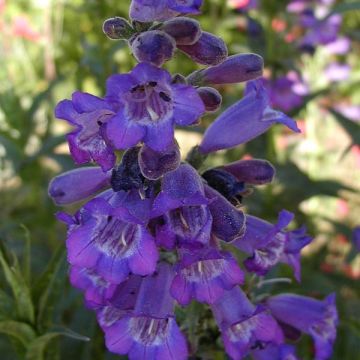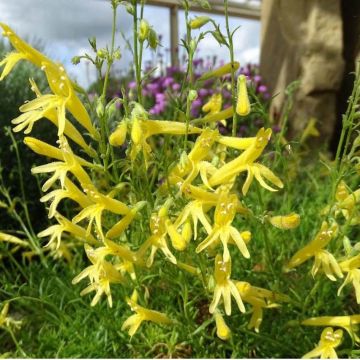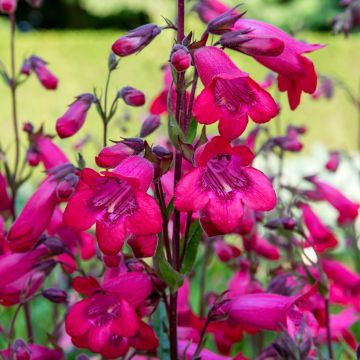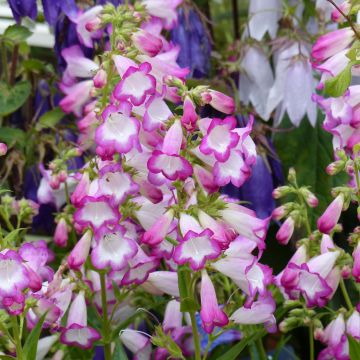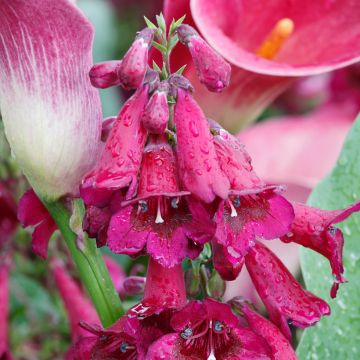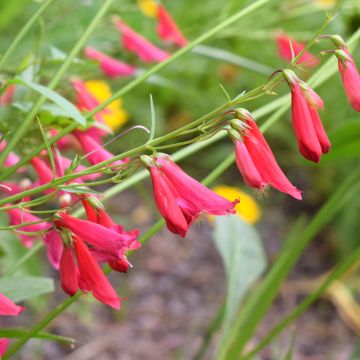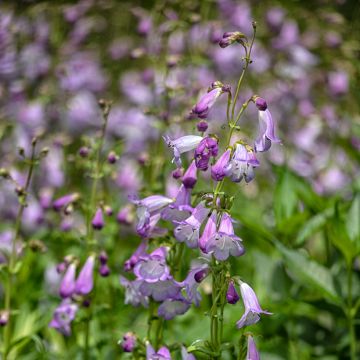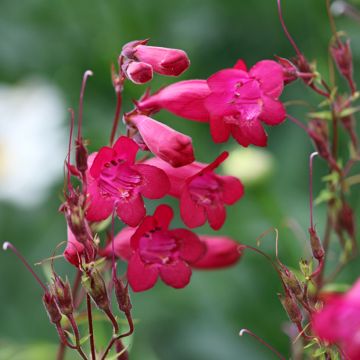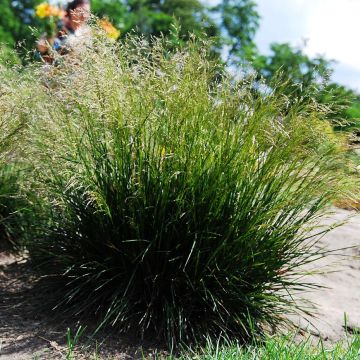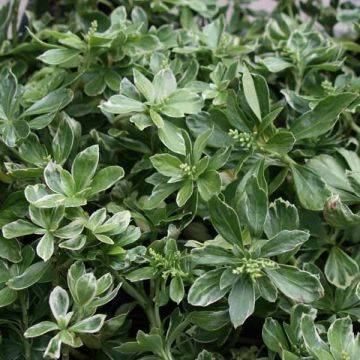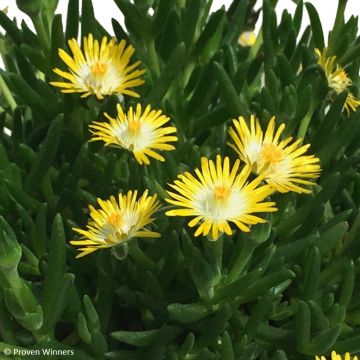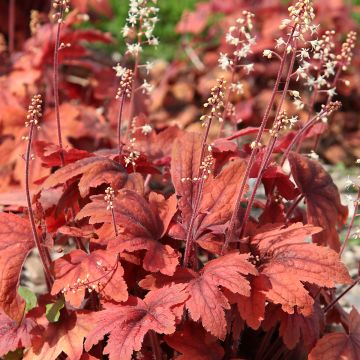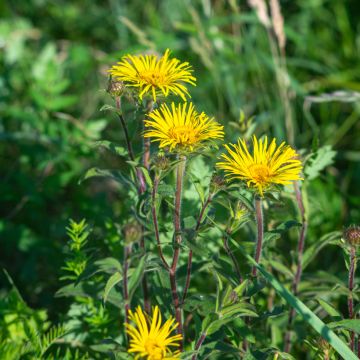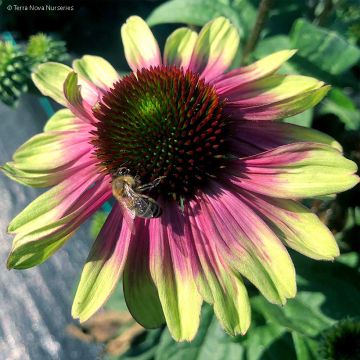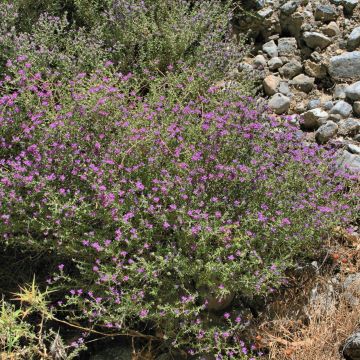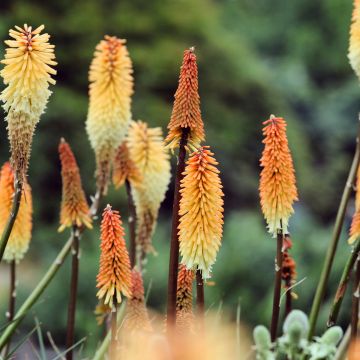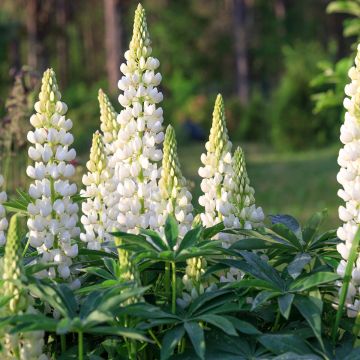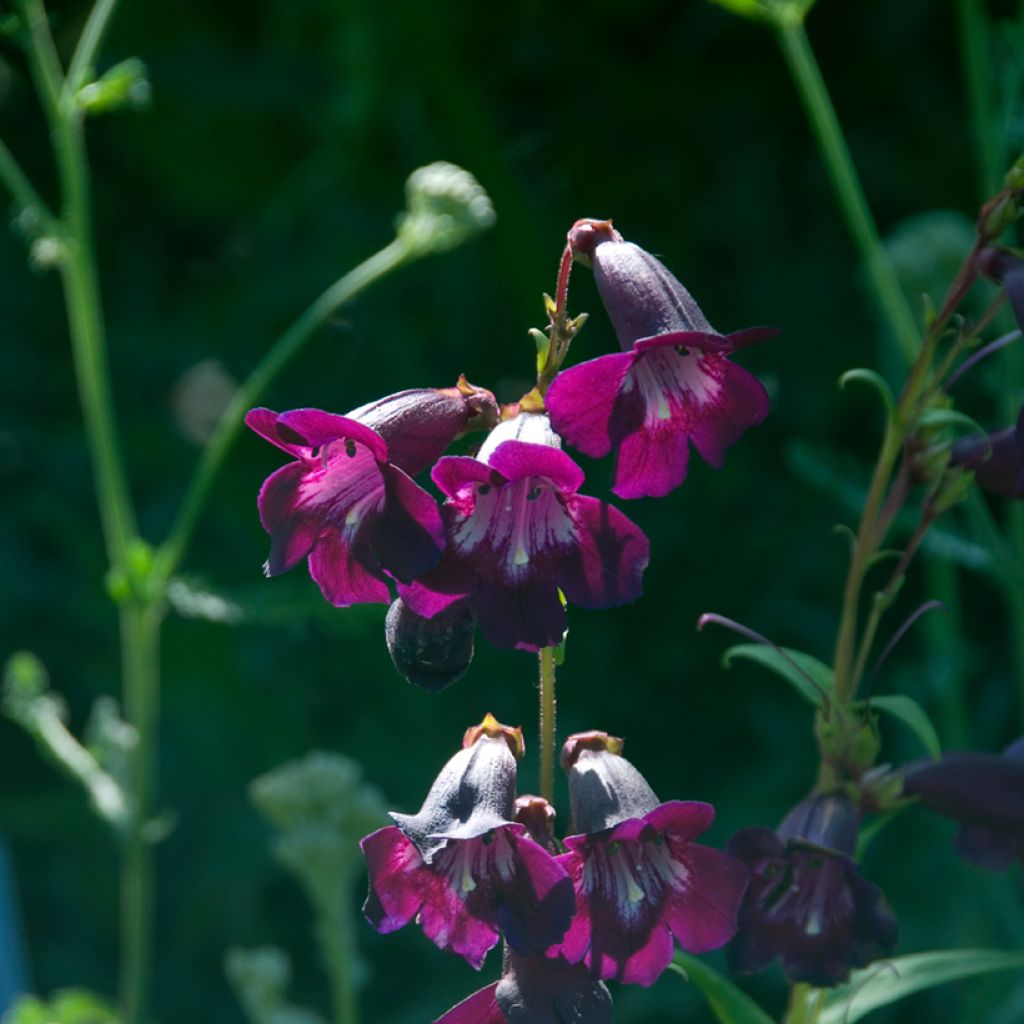

Penstemon hybrida Raven - Beardtongue
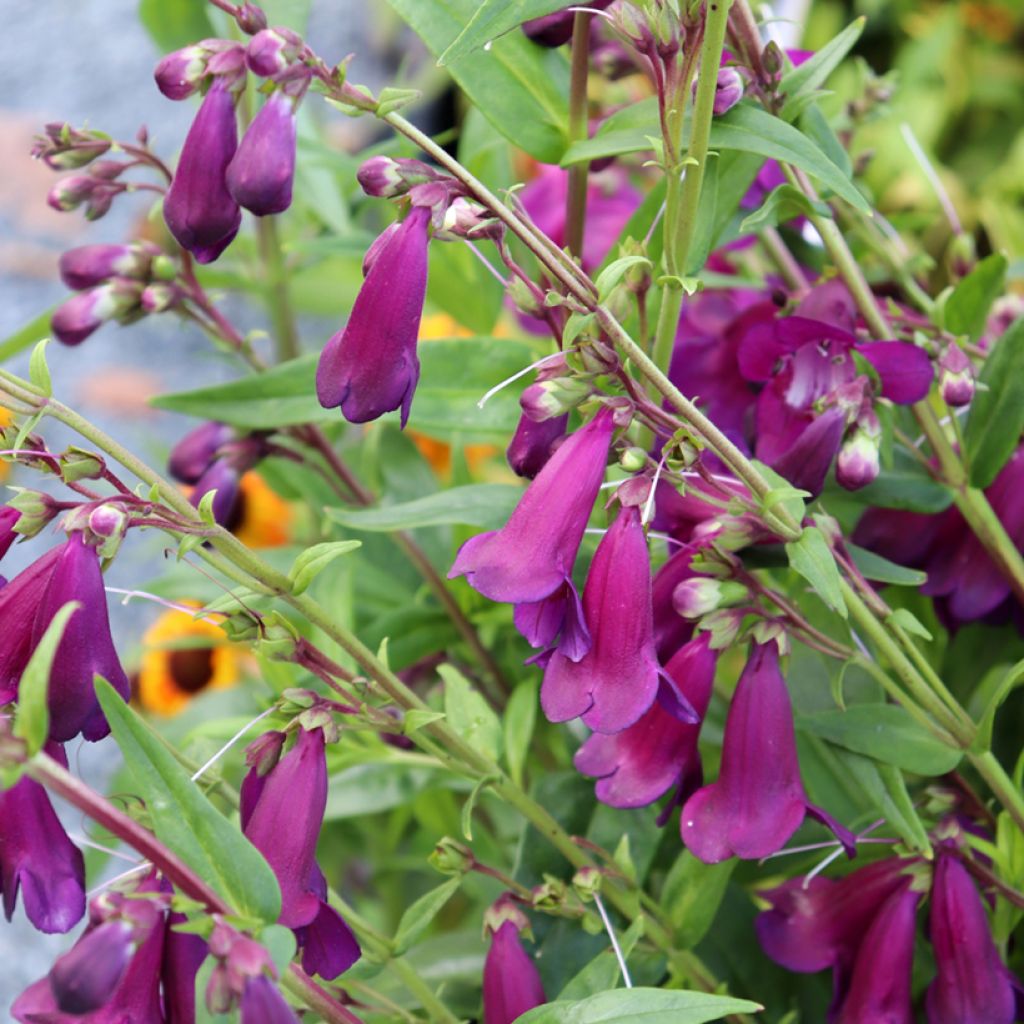

Penstemon hybrida Raven - Beardtongue
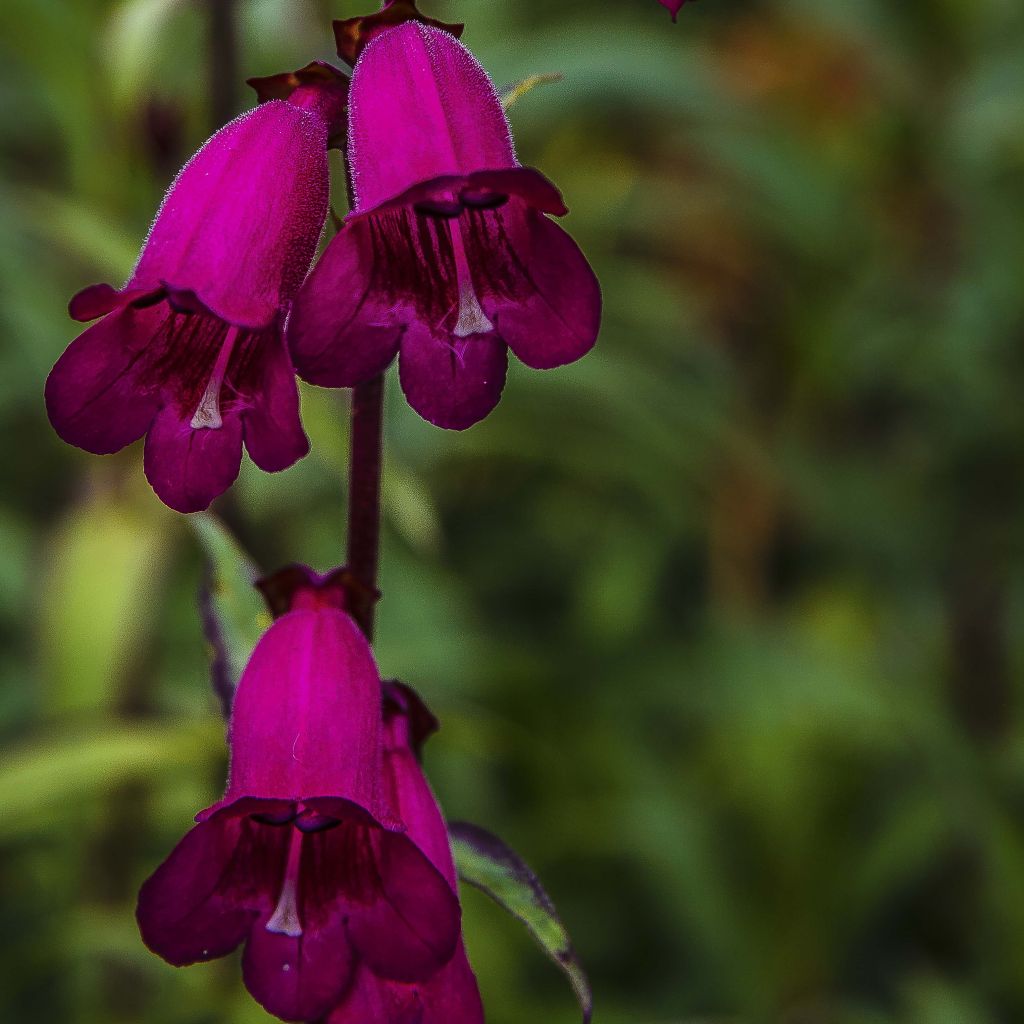

Penstemon hybrida Raven - Beardtongue
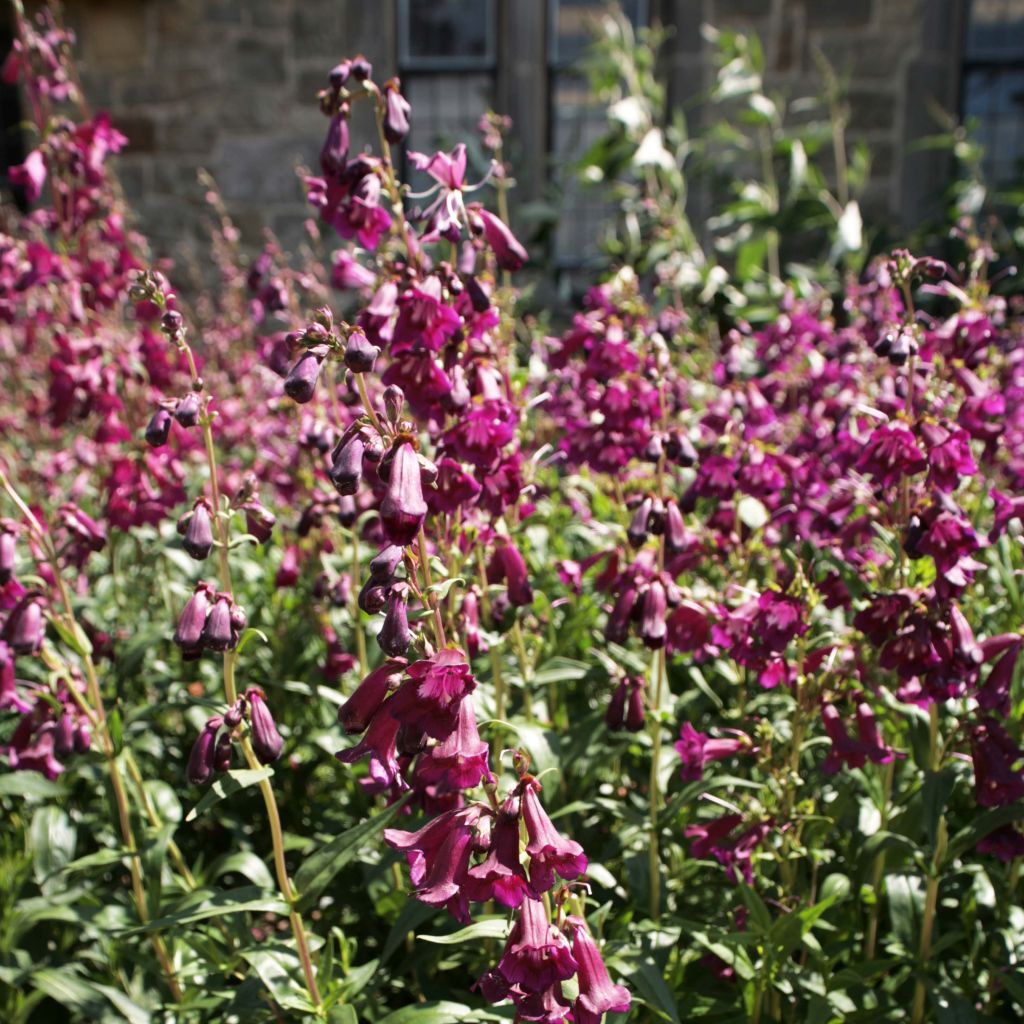

Penstemon hybrida Raven - Beardtongue
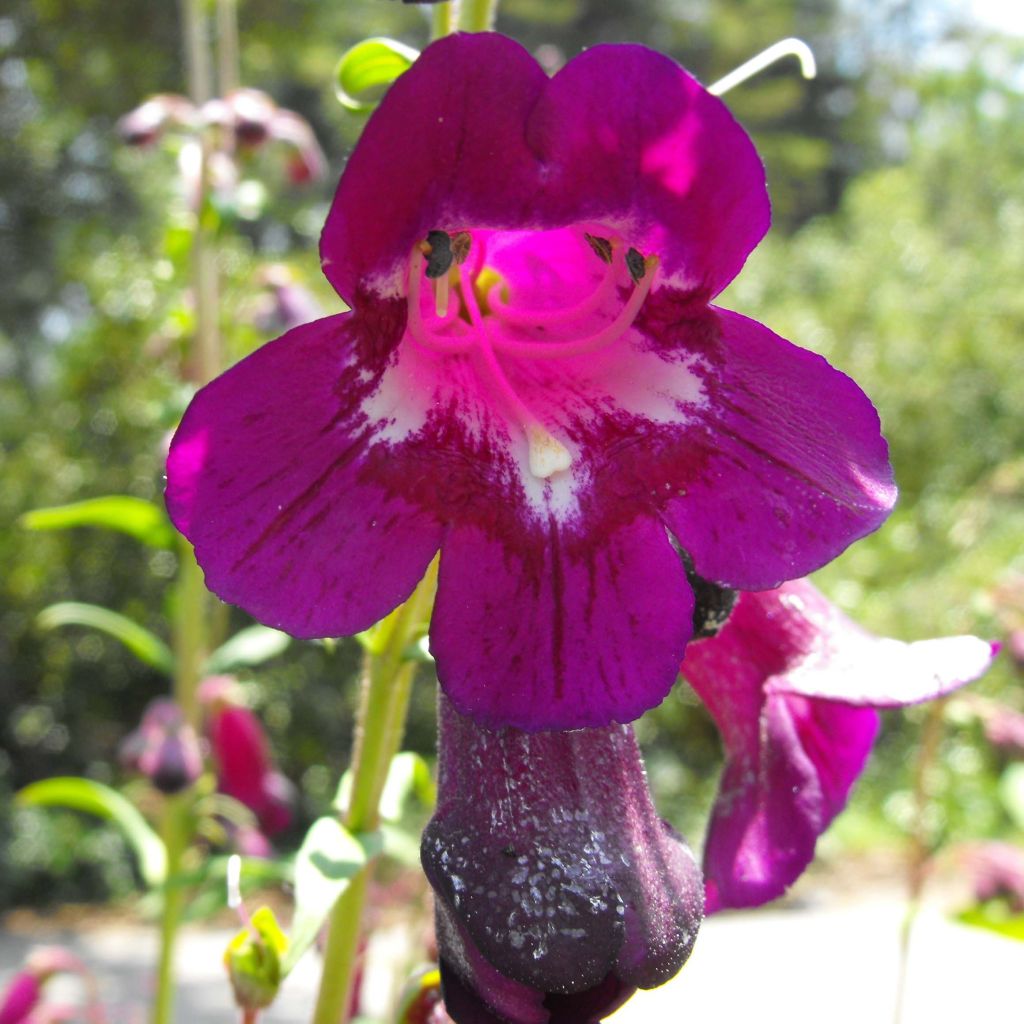

Penstemon hybrida Raven - Beardtongue
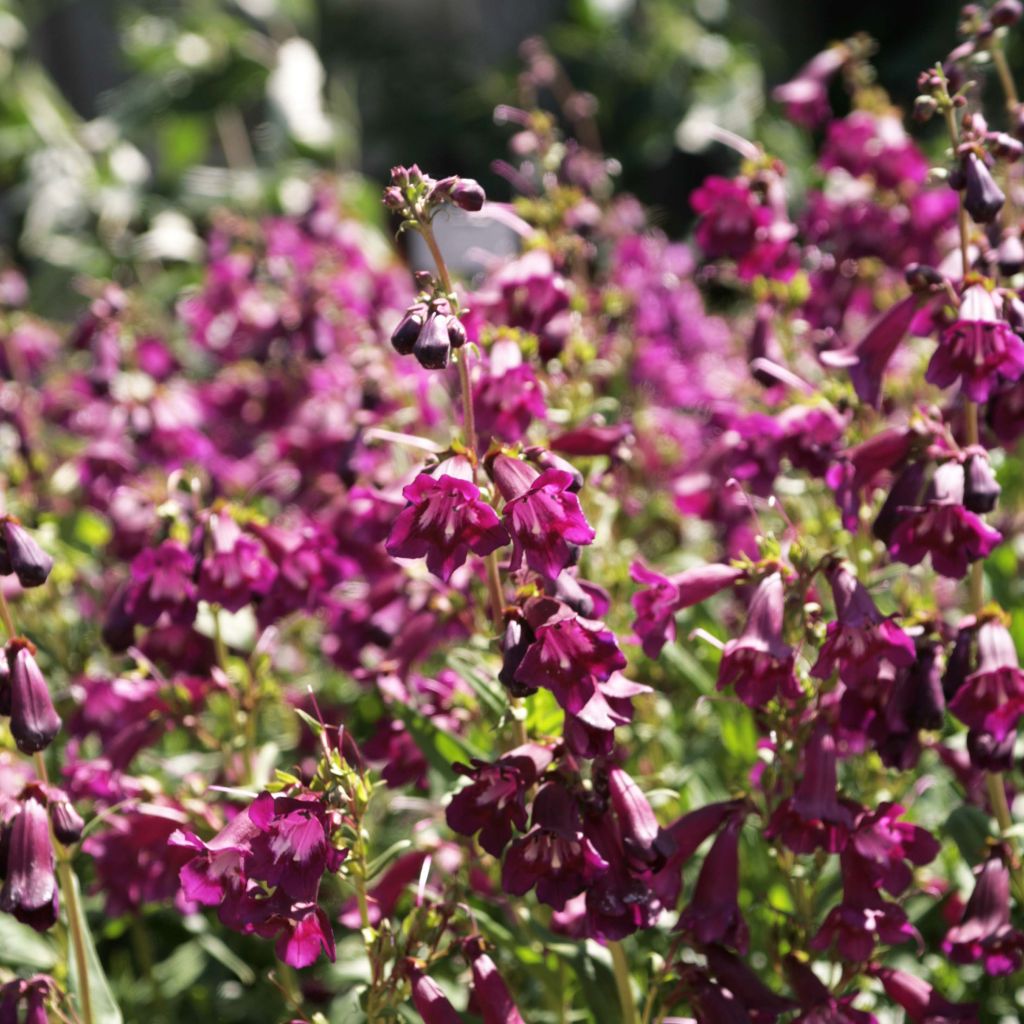

Penstemon hybrida Raven - Beardtongue
Penstemon hybrida Raven - Beardtongue
Penstemon x hybrida Raven
Bellflower Beardtongue, Canterbury Bells Penstemon
This item cannot be shipped to the selected country
Delivery charge from €5.90
More information
Schedule delivery date,
and select date in basket
This plant carries a 12 months recovery warranty
More information
We guarantee the quality of our plants for a full growing cycle, and will replace at our expense any plant that fails to recover under normal climatic and planting conditions.
From €5.90 for pickup delivery and €6.90 for home delivery
Express home delivery from €8.90.


Does this plant fit my garden?
Set up your Plantfit profile →
Description
The Penstemon 'Raven' is a floriferous and robust beardtongue with unusually coloured flowering. Reaching over 80 cm (32in) in height, it produces on long sturdy stems an abundance of large campanulate flowers in a deep purple-purplish hue, accentuated by a white throat striped with dark red. This perennial may not be the hardiest, but it blooms profusely from summer to autumn, enhancing all shades of acid green and violet, both in borders and in bouquets. The Royal Horticultural Society has awarded this variety in the UK.
The hybrid Penstemon 'Raven' is a bushy and woody perennial plant belonging to the family of Scrophulariaceae, just like foxgloves and snapdragons. Like many hybrid penstemons, it is the result of cross-breeding several species, mostly originating from Central and North America. This variety quickly forms large upright and generous clumps, sometimes reaching 1 m (3ft) in height, with a minimum diameter of 60 cm (24in). Its green stems, sometimes slightly purplish, are ramified and covered with abundant, lanceolate, semi-evergreen foliage of a vibrant green. The flowering period extends from June to September-October, provided that faded flowers are regularly removed. The flowers develop at the terminal part of the leafy stems. The trailing flowers, shaped like bell-shaped campanulas and measuring 4.5 cm (2in) in length, are gathered in slightly loose clusters. They boast a particularly rich colour, a very intense purple verging on purple, surrounding a throat striped with very dark red.
The 'Raven' beardtongue is best used in borders, due to its large size, among perennials such as agapanthus, caryopteris, purple or violet dahlias, or mixed with annuals such as love-in-a-mist and cosmos. It pairs particularly well with the acidic green tones of lady's mantle and euphorbias. It also performs very well in a large pot, with proper drainage and regular fertiliser. Penstemons also make excellent cut flowers.
Report an error about the product description
Penstemon hybrida Raven - Beardtongue in pictures
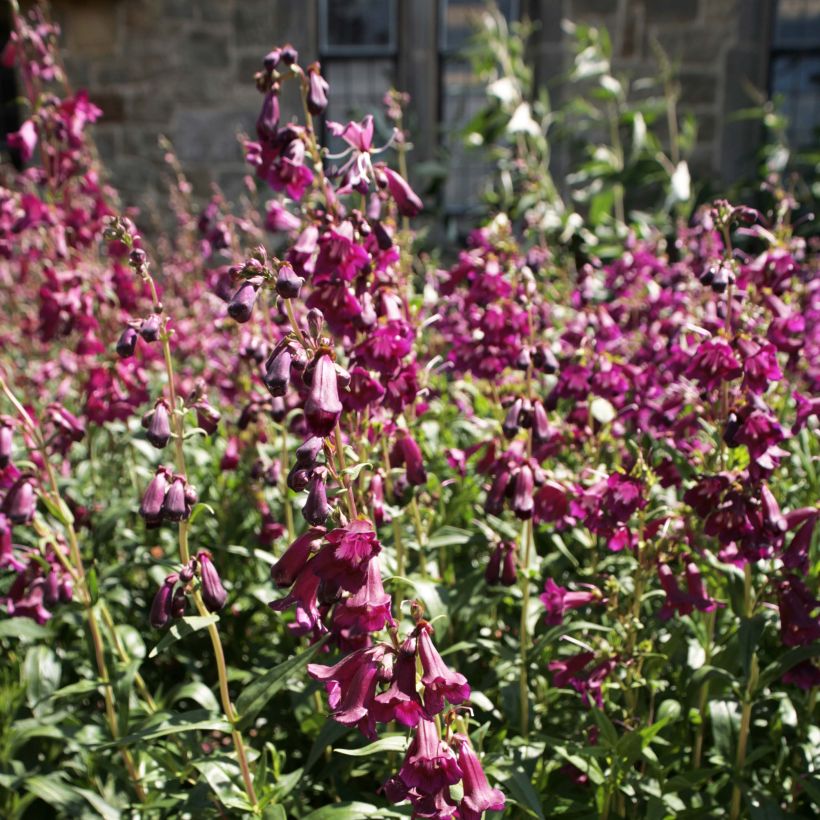

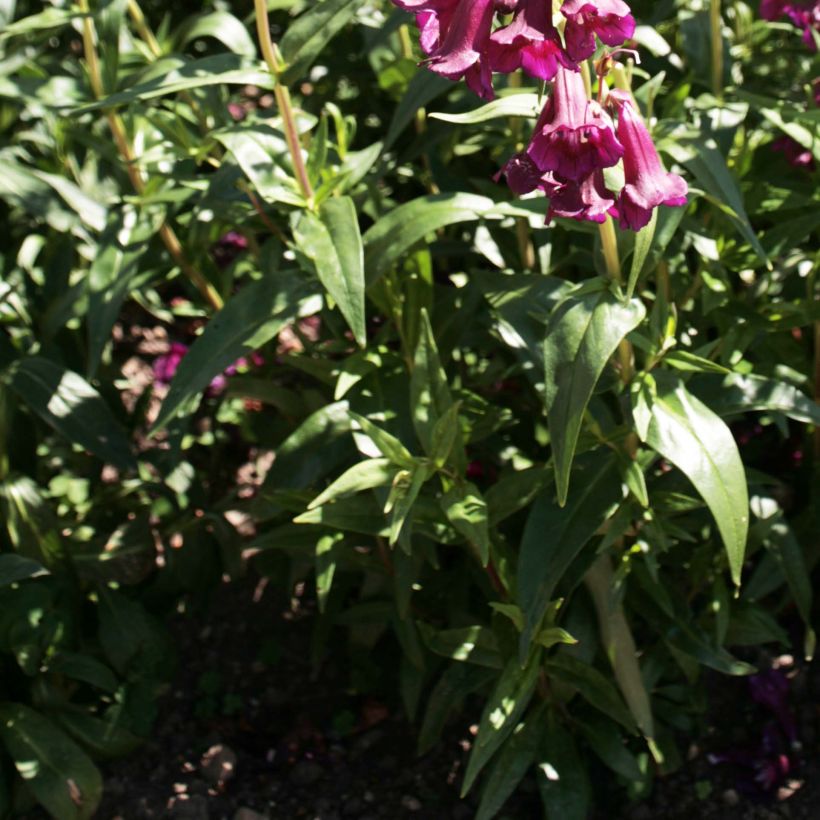

Flowering
Foliage
Plant habit
Botanical data
Penstemon
x hybrida
Raven
Scrophulariaceae (Plantaginaceae)
Bellflower Beardtongue, Canterbury Bells Penstemon
Cultivar or hybrid
Other Penstemon
Planting and care
Penstemon 'Raven' is not very hardy and cannot tolerate temperatures below -10°C (14°F), unless the soil is well-drained in winter and the stump is covered with a thick layer of leaves or straw. To grow hybrid penstemons successfully, it's important to have good soil that's rich, not too dry in summer, but drains well, especially in winter. If the soil is too wet, the plants can rot quickly.
In cool climates, place the plants in a warm and sunny spot that's shielded from cold winds, preferably facing south or west. In hot climates, choose a semi-shaded location that's rather cool. In very cold regions, take stem cuttings in autumn. Penstemons don't suffer from any specific diseases and require minimal maintenance. When removing faded flowers in autumn, it's important to slightly shorten the deflowered stems without cutting them down to the ground. This is particularly important in regions with humid winters since the foliage plays an important role in regulating humidity.
Wait until spring (March-April) to shorten the branches whose foliage has been damaged by the cold. If summer is dry, water the plants regularly to support flowering. Cover the base with glass or a frame to protect it from severe cold in the coldest regions. Penstemons should be divided every three or four years in the spring to rejuvenate them.
Planting period
Intended location
Care
-
, onOrder confirmed
Reply from on Promesse de fleurs
Summer flowering perennials
Haven't found what you were looking for?
Hardiness is the lowest winter temperature a plant can endure without suffering serious damage or even dying. However, hardiness is affected by location (a sheltered area, such as a patio), protection (winter cover) and soil type (hardiness is improved by well-drained soil).

Photo Sharing Terms & Conditions
In order to encourage gardeners to interact and share their experiences, Promesse de fleurs offers various media enabling content to be uploaded onto its Site - in particular via the ‘Photo sharing’ module.
The User agrees to refrain from:
- Posting any content that is illegal, prejudicial, insulting, racist, inciteful to hatred, revisionist, contrary to public decency, that infringes on privacy or on the privacy rights of third parties, in particular the publicity rights of persons and goods, intellectual property rights, or the right to privacy.
- Submitting content on behalf of a third party;
- Impersonate the identity of a third party and/or publish any personal information about a third party;
In general, the User undertakes to refrain from any unethical behaviour.
All Content (in particular text, comments, files, images, photos, videos, creative works, etc.), which may be subject to property or intellectual property rights, image or other private rights, shall remain the property of the User, subject to the limited rights granted by the terms of the licence granted by Promesse de fleurs as stated below. Users are at liberty to publish or not to publish such Content on the Site, notably via the ‘Photo Sharing’ facility, and accept that this Content shall be made public and freely accessible, notably on the Internet.
Users further acknowledge, undertake to have ,and guarantee that they hold all necessary rights and permissions to publish such material on the Site, in particular with regard to the legislation in force pertaining to any privacy, property, intellectual property, image, or contractual rights, or rights of any other nature. By publishing such Content on the Site, Users acknowledge accepting full liability as publishers of the Content within the meaning of the law, and grant Promesse de fleurs, free of charge, an inclusive, worldwide licence for the said Content for the entire duration of its publication, including all reproduction, representation, up/downloading, displaying, performing, transmission, and storage rights.
Users also grant permission for their name to be linked to the Content and accept that this link may not always be made available.
By engaging in posting material, Users consent to their Content becoming automatically accessible on the Internet, in particular on other sites and/or blogs and/or web pages of the Promesse de fleurs site, including in particular social pages and the Promesse de fleurs catalogue.
Users may secure the removal of entrusted content free of charge by issuing a simple request via our contact form.
The flowering period indicated on our website applies to countries and regions located in USDA zone 8 (France, the United Kingdom, Ireland, the Netherlands, etc.)
It will vary according to where you live:
- In zones 9 to 10 (Italy, Spain, Greece, etc.), flowering will occur about 2 to 4 weeks earlier.
- In zones 6 to 7 (Germany, Poland, Slovenia, and lower mountainous regions), flowering will be delayed by 2 to 3 weeks.
- In zone 5 (Central Europe, Scandinavia), blooming will be delayed by 3 to 5 weeks.
In temperate climates, pruning of spring-flowering shrubs (forsythia, spireas, etc.) should be done just after flowering.
Pruning of summer-flowering shrubs (Indian Lilac, Perovskia, etc.) can be done in winter or spring.
In cold regions as well as with frost-sensitive plants, avoid pruning too early when severe frosts may still occur.
The planting period indicated on our website applies to countries and regions located in USDA zone 8 (France, United Kingdom, Ireland, Netherlands).
It will vary according to where you live:
- In Mediterranean zones (Marseille, Madrid, Milan, etc.), autumn and winter are the best planting periods.
- In continental zones (Strasbourg, Munich, Vienna, etc.), delay planting by 2 to 3 weeks in spring and bring it forward by 2 to 4 weeks in autumn.
- In mountainous regions (the Alps, Pyrenees, Carpathians, etc.), it is best to plant in late spring (May-June) or late summer (August-September).
The harvesting period indicated on our website applies to countries and regions in USDA zone 8 (France, England, Ireland, the Netherlands).
In colder areas (Scandinavia, Poland, Austria...) fruit and vegetable harvests are likely to be delayed by 3-4 weeks.
In warmer areas (Italy, Spain, Greece, etc.), harvesting will probably take place earlier, depending on weather conditions.
The sowing periods indicated on our website apply to countries and regions within USDA Zone 8 (France, UK, Ireland, Netherlands).
In colder areas (Scandinavia, Poland, Austria...), delay any outdoor sowing by 3-4 weeks, or sow under glass.
In warmer climes (Italy, Spain, Greece, etc.), bring outdoor sowing forward by a few weeks.

































